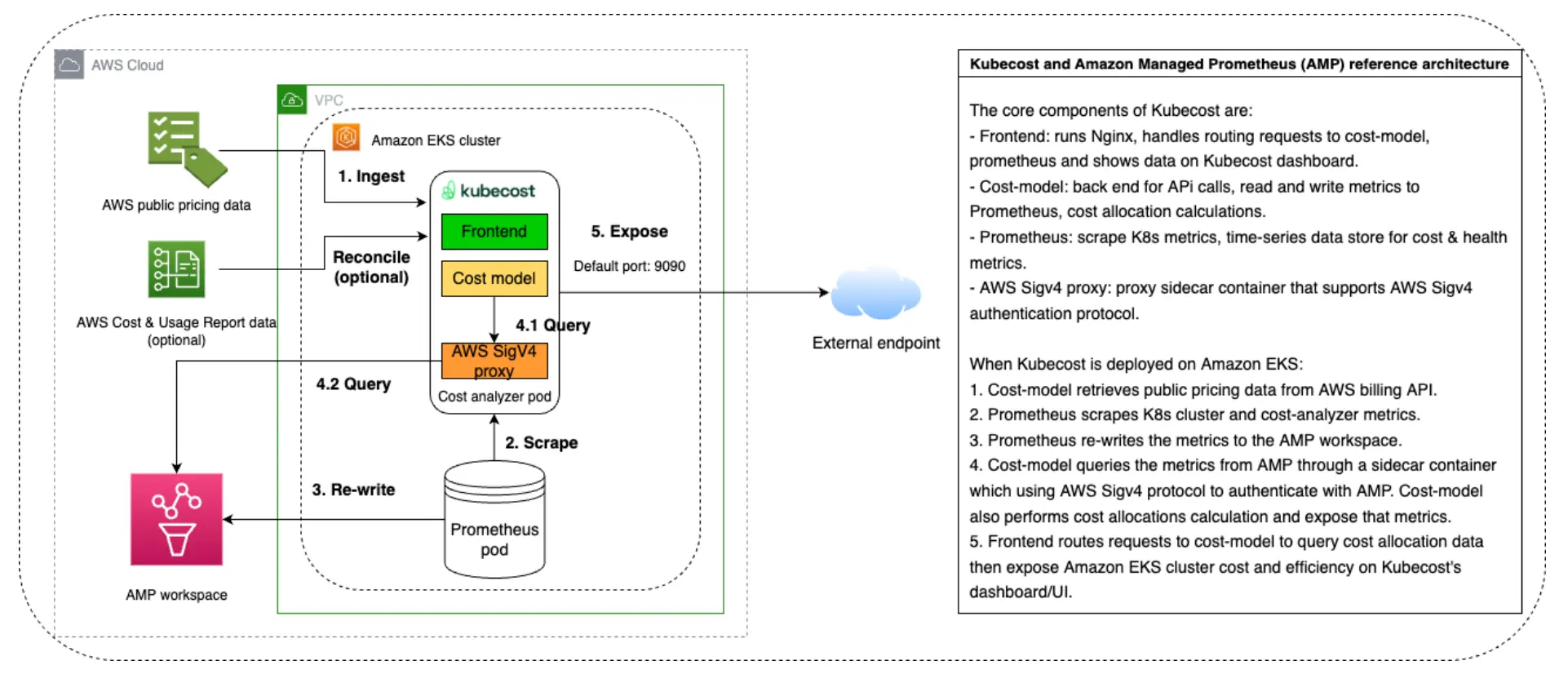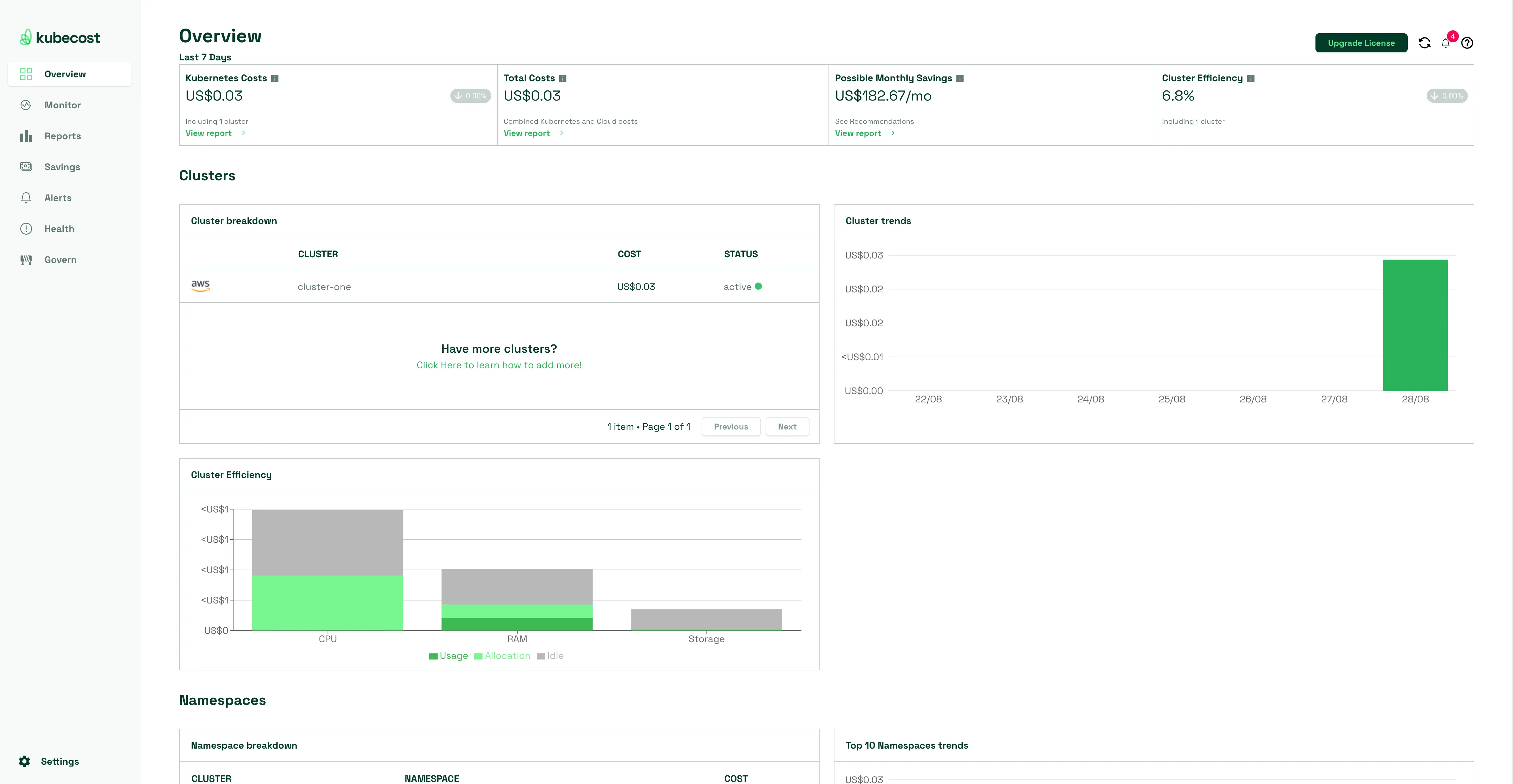Installation
AMP is a Prometheus-compatible monitoring and alerting service that makes it easy to monitor containerized applications and infrastructure at scale. You can use the open-source Prometheus query language to monitor and alert for the performance of containerized workloads without having to worry about scaling the underlying monitoring infrastructure. The service automatically scales the ingestion, storage, alerting, and querying of operational metrics as workloads grow or shrink. Furthermore, it’s integrated with AWS security services to enable fast and secure access to data. This lets you concentrate on your workloads instead of having to manage your monitoring stack.
Below is an image of how Kubecost integrates with AMP. Kubecost uses a Signature Version 4 (SigV4) proxy to query AMP. SigV4 is the process to add authentication information to AWS API requests sent by HTTP. For security, most requests to AWS must be signed with an access key. The access key consists of an access key ID and secret access key, which are commonly referred to as your security credentials. When an AWS service receives the request, it performs the same steps that you did to calculate the signature you sent in your request. AWS then compares its calculated signature to the one you sent with the request. If the signatures match, the request is processed. If the signatures don't match, the request is denied.

The first thing we'll do is install Kubecost in our cluster. As part of the lab preparation an the AWS Load Balancer Controller and EBS CSI driver were pre-installed to provide ingress and storage to Kubecost. AMP workspace was also provision.
All that we have left to do is install Kubecost as a Helm chart:
NAME: kubecost
LAST DEPLOYED: Thu Jun 13 17:48:55 2024
NAMESPACE: kubecost
STATUS: deployed
REVISION: 1
TEST SUITE: None
NOTES:
[...]
This will take a few minutes to complete, then we can check to see if Kubecost is running:
kubecost-cost-analyzer 1/1 1 1 16m
kubecost-kube-state-metrics 1/1 1 1 16m
kubecost-prometheus-server 1/1 1 1 16m
Kubecost has been exposed using a LoadBalancer service, and we can find the URL to access it like so:
Kubecost URL: http://k8s-kubecost-kubecost-e83ecf8fc1-fc26f5c92767520f.elb.us-west-2.amazonaws.com:9090
The load balancer will take some time to provision so use this command to wait until Kubecost responds:
curl: (6) Could not resolve host: k8s-kubecost-kubecost-e83ecf8fc1-fc26f5c92767520f.elb.us-west-2.amazonaws.com
Warning: Problem : timeout. Will retry in 15 seconds. 20 retries left.
[...]
HTTP/1.1 200 OK
Server: nginx/1.24.0
Date: Thu, 13 Jun 2024 17:53:16 GMT
Content-Type: text/html
Content-Length: 1150
Last-Modified: Thu, 12 Oct 2023 17:01:29 GMT
Connection: keep-alive
ETag: 1.106.3
Cache-Control: must-revalidate
Cache-Control: max-age=300
Accept-Ranges: bytes
Open the URL in your browser to access Kubecost:
